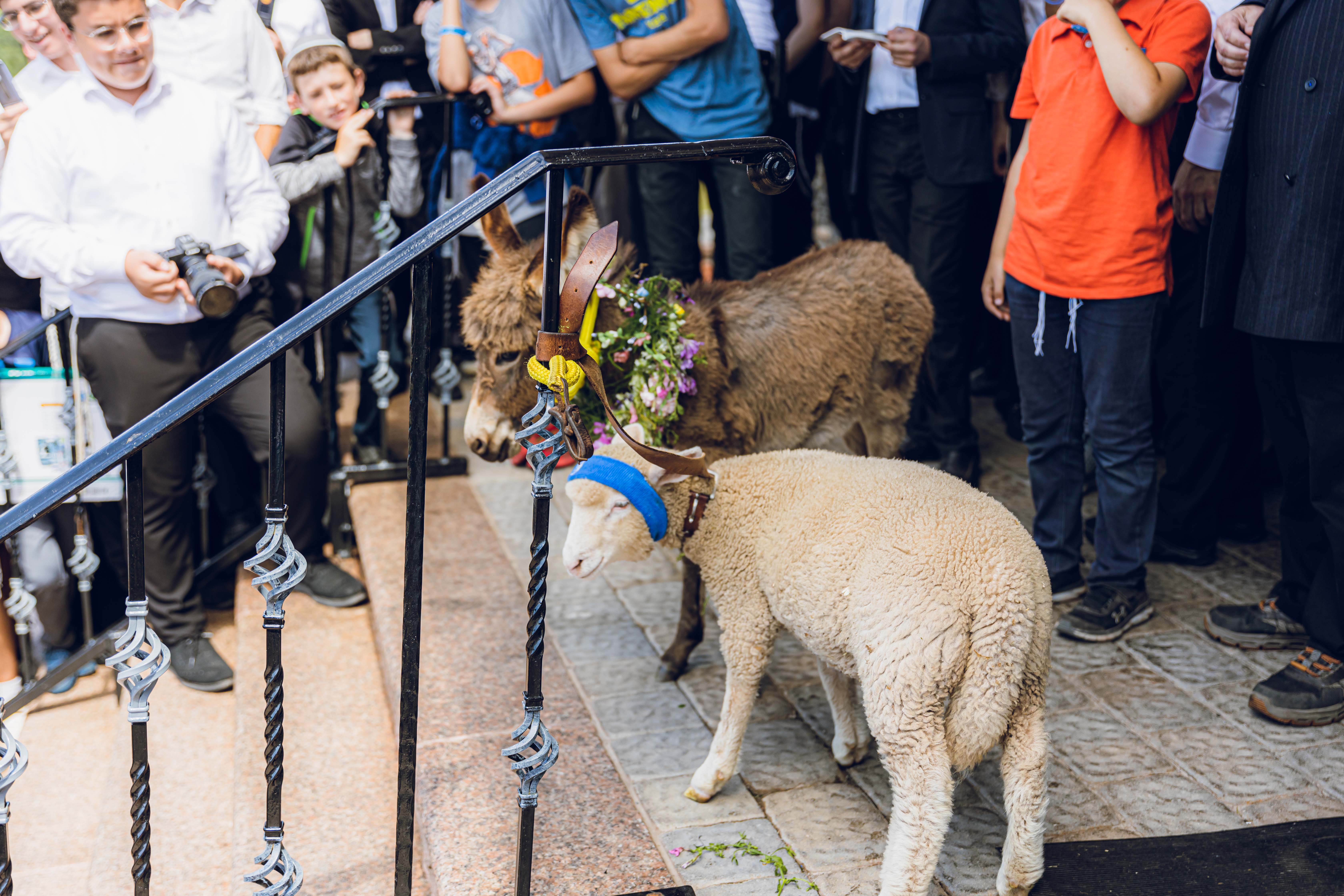Chessed At The Center
In a world that often prioritizes success, status, and personal gain, Judaism teaches that true greatness lies in acts of kindness. In the Torah’s way of thinking, chessed – kindness, is not just a special trait; it is the very foundation of a Jew’s life. Chessed means helping others with a full heart and real love. It’s not just one mitzvah (Torah commandment) among many – it’s the heart of how we live as Jews.
From the moment Avraham Avinu, the very first Jew, welcomed strangers into his tent,
setting the gold standard for hospitality, to the countless mitzvot encouraging us to care for
others, kindness is at the heart of Jewish living. It’s found in the way we greet one another,
support the vulnerable (giving charity, visiting the sick, comforting mourners etc.), and even
in the simple act of offering a smile or speaking gently and respectfully to each person.
Open Heart, Open Circles
One of the most beautiful aspects of Jewish kindness is that it extends beyond our own circles.
The Torah emphasizes treating the ger, (the convert), with compassion – reminding us that every Jew carries a Divine spark and deserves to be treated with warmth and care. It is said that one of the hallmarks of the Am Yisrael (the Jewish people) is that we are “rachmanim b’nei rachmanim” – merciful descendants of merciful ancestors. Kindness isn’t just something we do; it’s who we are.
The most special thing about chessed is that it comes from a pure heart. When a person helps others with real sincerity and unconditional love, it brings incredible kedushah – holiness. The Rambam (Maimonides) teaches that tzedakah (charity) should always be given with a smile, because its purpose is not just to help people physically, but also to uplift them and give them kavod (respect and dignity) and hope.
Kindness For Nothing In Return
Chazal (our Sages of blessed memory) also teach us about the highest level of kindness: “chessed shel emet” – helping someone who can’t return the favor. For example, taking care of a niftar (deceased) properly or davening (praying) for their neshamah (soul) is an act of kindness that has no personal gain, just a deep ahavat yisrael (love of one’s fellow Jew).
Chessed is a way to bring Hashem’s (God’s) presence into the world and make it holier. When a person does good for others with love and humility, they become a partner in Hashem’s work and in building a better world.
Ultimately, kindness in Judaism is about transforming the ordinary into the extraordinary. Every action, no matter how small, can be infused with holiness. When we choose to treat people with care, speak gently, and extend warmth, we bring Hashem’s presence into our everyday interactions.
Let’s Break It Down
We can even see the significance in the word chessed – חסד in Hebrew: the letter Chet – ח is
formed by two vertical lines connected by a horizontal bridge on top, creating an enclosed
shape. This structure is often interpreted in Jewish thought as representing “protection,
enclosure, and connection”. Some explanations suggest that the three closed sides symbolize the “three pillars of the world” mentioned in Pirkei Avot (1:2): “ תורה (the study of Torah), עבודה/Avodah (tefillah-prayer) and גמילות חסדים/Gemilut Chasadim (Acts of Kindness)”.
Since “chessed” is all about kindness and giving, the Chet (ח) in its structure reflects the idea that kindness is a foundational force that holds the world together. The open side of the letter can symbolize “openness to giving”, showing that chessed is not meant to be contained but rather extended outward to others.
Chessed: Chet, Samach, Daled
Let’s break down the rest of the word, the Samach – ס & Daled – ד. The letter Samach (ס) symbolizes “wholeness, support, and Divine protection”. In Jewish thought, Samach represents “Hashem’s sustaining power”, holding up those who fall. This aligns beautifully with the concept of chessed, as acts of kindness often involve “lifting others up, providing support, and ensuring stability”.
A fascinating connection is found in Tehillim (Psalms – 145:14), where the pasuk (verse) states:
“Someich Hashem lechol hanoflim – Hashem supports all who fall.”
The word “someich” shares the root with “samach”, reinforcing the idea that ‘chessed‘ is about sustaining and uplifting others.
That leaves us with the final letter of the word. The letter Daled (ד) is shaped like a ‘doorway’, symbolizing “openness, humility, and generosity”. In Kabbalistic thought, Daled represents a “poor person” (דל/dal) who is in need. It can also signify “humility” emphasizing care for
others. This reveals that chessed is not just an action—it’s a force that sustains, uplifts, and connects people in a meaningful way.
Bring It Home
By bringing chessed into our lives, we don’t just change the world—we elevate it.
May we all merit to bring chessed into our lives, to greet every person warmly, and to
spread the light of Torah with kindness and ahavah (love). And with that, will we merit to greet
Mashiach (Messiah) speedily in our days.
By Shloimy Braun


